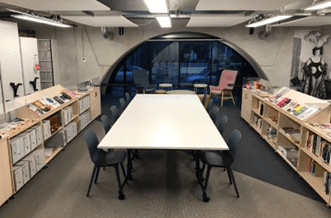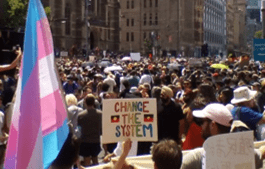By Clare O’Hanlon, La Trobe University Library
e: c.ohanlon@latrobe.edu.au
Open knowledge activism in libraries is about more than negotiating transformative agreements and making research available in repositories and open access journals. It also involves helping researchers and students give research back to communities in an accessible and meaningful format for their needs and contexts. Academic library worker support for student and academic digital literacies development, particularly information, media, and data literacies; collaboration; community and participation; and digital creation, problem solving and innovation, plays a crucial role in this. Local public library and community archive and museum workers provide extensive digital literacies, local history, STEM, and creative programming in their communities. Together we can do more to support lifelong learning, independent research, and knowledge translation.
Open knowledge activism by night
Volunteering with the Australian Queer Archives (AQuA) by night to preserve and make research and more knowledge available for and with LGBTIQA+ communities within and beyond the academy in multiple formats (from queer history walks and exhibitions to an Honours thesis prize and beyond) has helped me see that research can be a collective, generative, and transformative process. Our collection and work may not be open in traditional academic “Open Access” ways, and it is not safe for our collection to be completely open to all, but we are open in the inclusive sense of the word. In her Open as in dangerous talk, Chris Bourg illustrates the importance of individual privacy and protection from abuse and harassment, and warns that Open Access publishing can perpetuate existing systems of oppression and inequality and that opening up collections can potentially lead to a loss of context that is then extracted and shared in diverse ways. Bourg’s warnings and my work at AQuA by night motivate me to advocate for the collective, generative, and transformative kind of research and openness in the sometimes extractive and competitive academic environment I work in by day.

Other ways that library workers can support open knowledge activism by night might include participating in learning spaces outside of universities, including but not limited to:
- Local, state, and national libraries
- Melbourne Free University
- Melbourne Art Library
- Islamic Museum of Australia
- Chinese Museum of Australian History
- Jewish Museum of Australia
- Living Museum of the West
- Science For All
- Wikipedia
- Nerd Nite
Open knowledge activism by day
Below are some ways I have helped and seen others help support lifelong learning, independent research, and knowledge translation through open knowledge activism by day:
- Encouraging participation in the above learning spaces
- Creating resources to help graduating students and alumni access resources beyond university (and developing live workshops on this topic)
- Collating and sharing alumni reading recommendations
- Adding existing open resources available in The Commons Library, Creative Equity Toolkit, and the Analysis & Policy Observatory
- Participating in the Visualise Your Thesis competition to help academics understand copyright and Creative Commons and translate their knowledge into non-traditional research outputs
- Educating everyone about copyright and Creative Commons
- Advocating for open pedagogy and renewable assessments to help students become co-creators of knowledge and be empowered to share their work
- Hosting makerspaces to facilitate the development of digital literacies needed to create non-traditional research and learning outputs with peers in safe, inclusive, experimental, experiential, and authentic environments (for examples, see: Curtin, Newcastle, UniSQ).
- Supporting community archives- for example, see: Hunter Living Histories blog and digital collections platform supported by the University of Newcastle Library.
- Supporting use of Zotero as it can be easily and freely shared with colleagues and communities outside the academy.
Additionally, we could help connect academics and students with local public library, archive and museum-based STEM, local history, literary and creative programming rather than compete with such programs. Some examples of this public library and related programming include:
- Using geolocation for self-guided local history audio walking tours
- WikiNorthia – Documenting life in Melbourne’s North
- Discovering History series
- Bibliotherapy: how reading with others can boost your wellbeing
- Science Week: coding at the library with Robogals
- STEAM Fest
We must keep in mind the amount of labour involved in opening up research, translating it into practice, and making it accessible to communities and recognise that this is not always adequately acknowledged and supported. With increasing focus on research impact and engagement, this is changing, and I hope this post will encourage academic and public library workers to collaborate with each other and academics and students to open research with and for communities.

